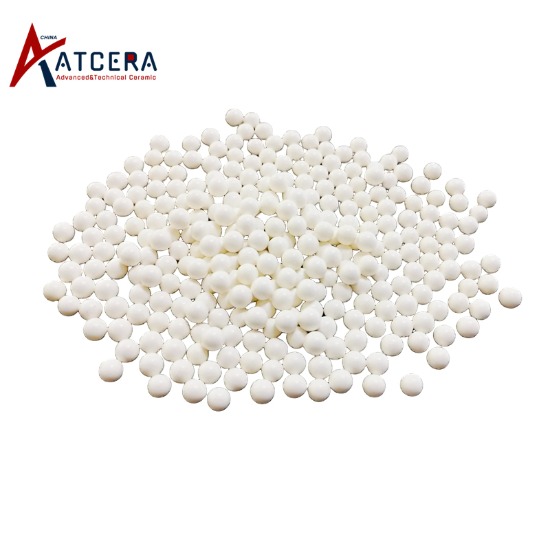In the vast world of materials science, zirconium oxide (ZrO₂) stands out for its unique physical and chemical properties, and has become a research hotspot in many fields. As an oxide with acidic center, alkaline center, oxidation and reducibility, zirconia not only has strong interaction with the active components of catalysts, but also shows great application potential in many fields such as catalysis, sensing and energy conversion due to its excellent characteristics of porous structure. In this paper, the versatility of zirconia ceramics, especially its application in the field of catalysts and functional materials, will be deeply discussed.

The Unique Advantages of Zirconia Ceramics as Catalysts and Carriers
The unique feature of zirconia ceramics is that it has both acidic and alkaline sites on its surface, which enables it to form a strong chemical bond with a variety of catalyst active components, thus effectively promoting the catalytic reaction. Porous ZrO₂ ceramic is an ideal catalyst carrier because of its high specific surface area and excellent pore structure, which provides a wide adhesion area and efficient mass transfer channel for the catalyst. By loading different active components, porous ZrO₂ ceramic catalyst can be widely used in petrochemical, environmental protection, new energy and other industrial fields, showing efficient catalytic performance and good stability.
Innovative Applications of Fully Stabilized Zirconia in Functional Materials
Fully stabilized zirconia, due to its excellent oxygen ion conductivity, is the first choice for functional materials such as oxygen sensors and solid fuel cell dielectrics. In the oxygen sensor, fully stabilized ZrO₂ ceramics as an electrolyte layer, can efficiently conduct oxygen ions, to achieve accurate measurement of oxygen concentration, widely used in automobile exhaust monitoring, medical respiratory equipment and other fields. In the solid fuel cell, fully stabilized ZrO₂ ceramics as an electrolyte, not only improves the operating temperature range of the battery, but also significantly improves the output power and long-term stability of the battery, providing strong support for the use of clean energy.
Future Prospects and Challenges for Zirconia Ceramics
With the progress of science and technology and the diversification of demand, the application field of zirconia ceramics will be further expanded. In the field of catalysts, by regulating the structure and surface properties of ZrO₂, a more efficient and environmentally friendly catalyst system can be designed to deal with the increasingly severe environmental pollution problems. In the field of functional materials, exploring the composite effect of ZrO₂ with other materials is expected to develop sensors and energy conversion devices with better performance and lower cost, and promote the development of clean energy and smart devices. However, how to further optimize the preparation process of zirconia ceramics, improve its comprehensive performance, and solve its stability and durability in specific application environments are still important challenges faced by current research.
In summary, zirconia ceramics, with its unique physical and chemical properties and porous structure advantages, have shown a wide range of applications in the field of catalysts and functional materials. From being a highly efficient catalyst carrier to becoming a key material for oxygen sensors and solid fuel cells, zirconia ceramics are constantly driving technological progress and innovation. In the future, with the continuous breakthrough of material science and preparation technology, the application of zirconia ceramics will be more diversified, providing strong support for solving major challenges in the fields of energy and environmental protection.

























